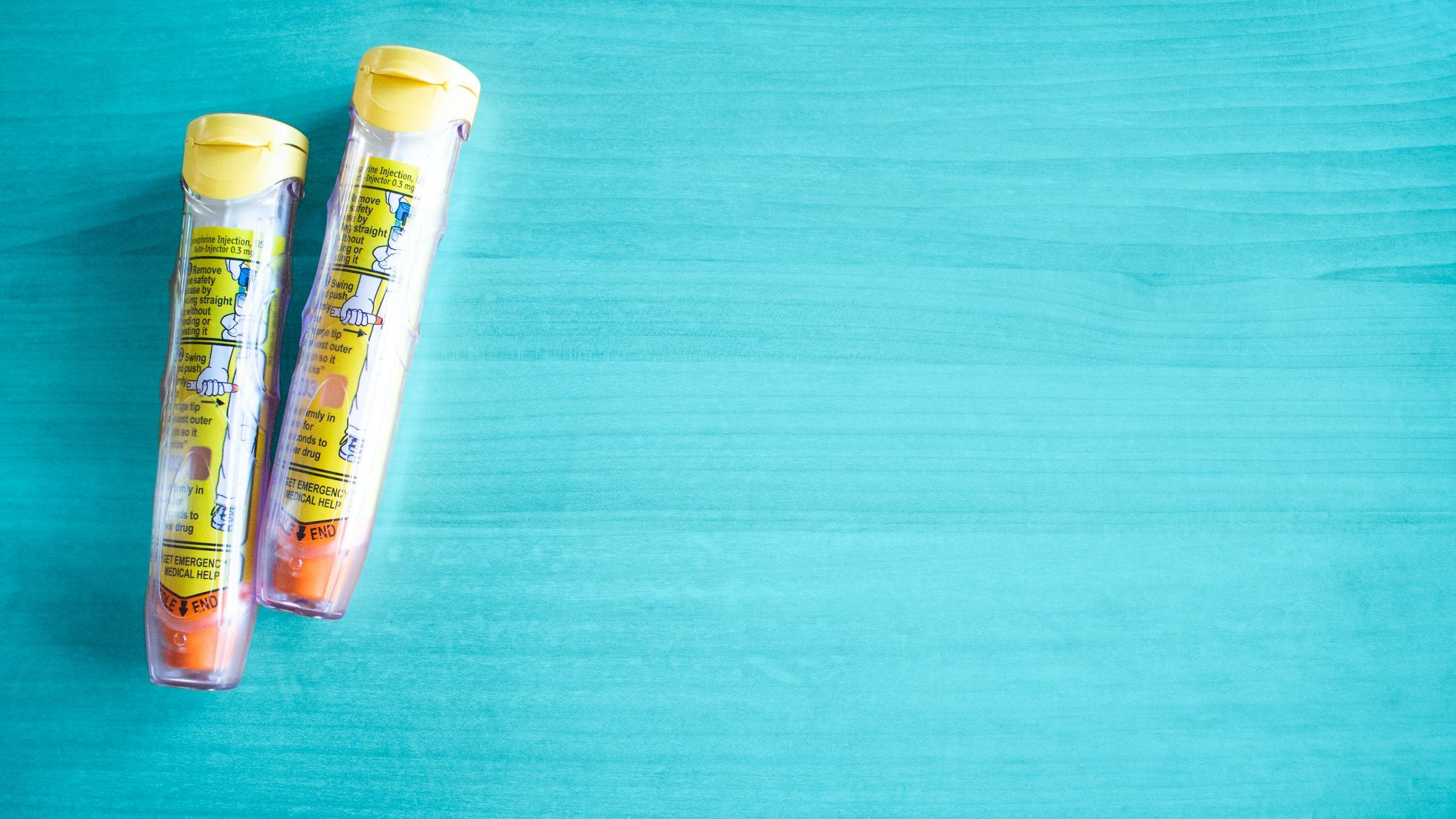What Medical Tourists Should Know About Food Allergies & Intolerances

Traveling for medical treatment abroad can be complicated. And if you have food allergies or intolerances, it might feel even more overwhelming. With different languages, customs, and culinary traditions, it can be difficult to find safe food options.
But don’t worry! With proper planning and preparations, you can travel with confidence, knowing you can safely manage your dietary needs.
This guide will walk you through some important things to consider during medical travel and what to do in case of an allergic reaction. We’re here to help make your medical journey as smooth and stress-free as possible!
Know your allergies
Firstly, understand your allergies and intolerances inside and out. So what’s the difference between food allergy and food intolerance?
If your immune system reacts to a certain food, that is a food allergy. This can lead to serious and life-threatening reactions. Some common food allergens are:
- Nuts
- Dairy
- Gluten
- Shellfish
On the flip side, food intolerances are different. These involve digestive issues, not immune responses. For example, lactose intolerance means your body struggles to digest milk. Common intolerances include:
- Lactose (found in milk)
- Gluten (found in wheat products)
So, the first step in staying safe on your trip is knowing exactly what you can and can’t eat. The better you know your own body’s needs, the easier it’ll be to manage your diet while you’re away.
Pre-travel preparations
It’s always best to plan ahead, especially when you’re going overseas for medical treatment. Whether you're heading to Thailand, Turkey, India, or elsewhere, understanding food safety and local customs around food will help you stay safe and well-fed.
Talk to your doctor
Before you even think about packing your bags, have a chat with your doctor.
Discuss your allergies, medical concerns, and the places you’re visiting. Ask for a letter that confirms your allergies and lists any medications you’ll need, like an epinephrine auto-injector (EpiPen) or antihistamines. This letter can be a lifesaver when dealing with airlines or medical facilities abroad.
Know your dietary needs
Some medical procedures may have dietary restrictions before or after surgery. For instance, if you're allergic to nuts, tell the medical facility. They need to know to keep you safe. Clear communication ensures you feel comfortable during your treatment.
At Quality Care Global, we connect you with top medical facilities that truly understand your health needs. So, you can travel with confidence, knowing we’ve got your back.
Traveling safely with food allergies
It’s not just the food that can trip you up while traveling; your destination itself plays a big role in managing your allergies. Let’s talk about it!
Research local cuisine
Before you jet off, do a little detective work on the food scene in your destination country. Every culture uses different ingredients, and some might hide allergens in dishes without you realizing it.
For instance, if you’re allergic to soy, keep in mind that it’s a staple in many Asian cuisines, popping up in sauces and marinades. If you’re gluten-intolerant, bread and pasta are common in places like Italy and France, so you’ll need to be extra cautious.
The more you know about local food customs, the easier it’ll be to explore menus and avoid anything risky.
Check airline and hotel policies
Before booking your flight, notify the airline of your allergies. Some airlines may offer allergen-free meals or avoid serving certain foods like peanuts if a passenger has a severe allergy. Carry your own food, just in case.
When booking your hotel, mention your food allergies. Many hotels catering to medical tourists can provide safe meals, and some even offer kitchenettes so you can prepare your own food.
Packing essentials for a smooth trip
Packing smart is key, especially when food allergies are a concern. Don’t forget these must-haves:
1. Allergy translation cards
If you’re heading to a country where you don’t speak the language, an allergy translation card is a lifesaver. These cards explain your allergies in the local language, so you can hand them over to restaurant staff to avoid misunderstandings.
For example, if you have a peanut allergy, your card could say, “Please do not include peanuts or peanut oil in my meal.” Simple, right? And super effective.
2. Pack snacks for peace of mind
One of the smartest things you can do is pack your own allergy-safe snacks. Whether it’s for the flight or just in case you can’t find safe food at your destination, having something on hand gives you peace of mind.
This is especially handy if you’re stuck on a long layover or have a hospital stay where the menu might not cater to your needs. Always bring more than you think you’ll need—better safe than sorry, right?
3. Medications
Always, always keep your medications with you. That includes your EpiPen, antihistamines, or any other emergency meds. Don’t pack them in your checked luggage—you want them easily accessible. And bring more than you think you’ll need.
Delays and unexpected emergencies happen, so having a backup supply is important.
Exploring food options while abroad
Dining out can feel intimidating when you’re dealing with food allergies, but with a little planning, you can still enjoy the local flavors.
Find allergy-friendly restaurants
Do some homework before you go. In many countries, you’ll find restaurants that cater to people with food allergies.
Gluten-free, dairy-free, and vegan options are becoming more common, especially in tourist-heavy areas. You can even find dedicated allergen-free cafes in bigger cities!
When you do sit down to eat, don’t hesitate to ask questions. Use your allergy translation card if needed, and make sure there’s no cross-contamination.
For example, if you’re dairy-intolerant, ask if your meal can be prepared without butter or cream. And be sure to avoid places where street food or unregulated kitchens might increase your risk.
Read food labels before buying any packaged product
Another challenge when traveling with food allergies is deciphering food labels in a foreign language. You might not be familiar with how allergens are listed, or the ingredients might be hidden behind unfamiliar terms.
Here’s how you can make things easier:
- Use translation apps to scan and translate labels.
- Carry pre-made allergen cards in the local language to show at stores and restaurants.
- Learn key allergen terms so you can easily spot dangerous ingredients on food packaging.
Being ready for emergencies
No one wants to think about emergencies while traveling but being prepared is key to staying safe.
Know the local hospitals
Before you leave, research nearby hospitals and clinics. Some countries, especially those known for medical tourism, have facilities that cater to international patients. Make sure you know how to get there quickly if you need to.
Always have an action plan
Carry a written allergy action plan that details what steps to take if you have a severe reaction. Keep your EpiPen and medications on hand at all times.
Also, keep your food allergy & anaphylaxis emergency care plan with you. And consider getting travel insurance that covers food allergy emergencies.
No matter how much you prepare, allergic reactions can still happen. Knowing where to go and what to do in an emergency can be a lifesaver—literally.
Travel smart, stay safe!
In short, managing food allergies while traveling for medical treatment doesn’t have to be a hassle. With a little planning and the right tips, you can keep your dietary needs in check and enjoy your trip.
If you want to dive deeper into the world of medical tourism, we have plenty of resources for you! Learn how to read food labels in different languages, discover tips for finding safe restaurants, or explore the best practices for handling allergies while abroad.
And if you’re looking for world-class medical treatment, contact QCG. We can connect you with the top professionals globally.

